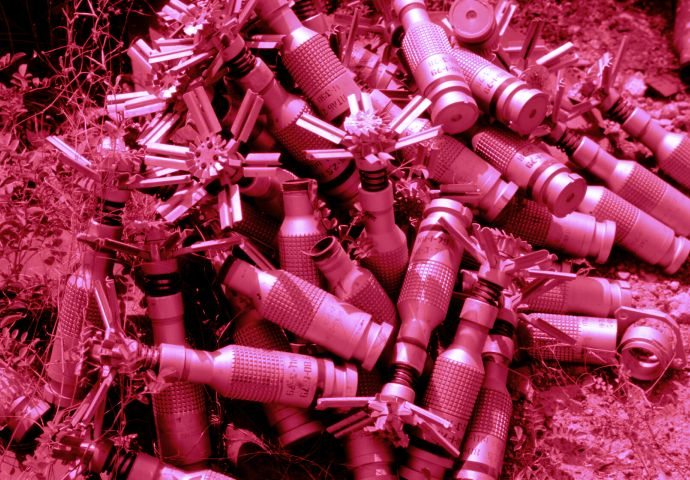Investment in cluster bomb producers fell this year after a US defence contractor stopped making the weapons, but major financial firms continued to back the trade, an NGO said Thursday.
The amount of money invested in the seven companies that still make the indiscriminate weapons tumbled to $24 billion (17 billion euros) from $43 billion, according to a report from Dutch peace group IKV Pax Christi.
The number, which refers to total investment over the past three years, fell because US defence giant Lockheed Martin stopped making cluster munitions.
“There are still way too many financial institutions that continue to invest in these producers,” Roos Boer, co-author of the report, told AFP in Copenhagen.
The report was released in the Danish capital because the government of Denmark is eyeing a ban on investing in cluster bomb manufacturers, already in place in nine other countries.
According to Boer, the lower amount of money invested in cluster bomb makers was skewed by the fact that Lockheed Martin derived most of its income from other products.
From an ethical viewpoint, it was more important to look at the number of companies willing to invest in makers of the reviled weapons, she argued.
“When you get hit by a cluster bomb you don’t really care if the investment was big or small,” Boer said.
IKV Pax Christi listed 139 financial institutions that invest in the industry in its “Hall of Shame”, up from 137 in 2012.
Major names on the list included Bank of America, JP Morgan Chase and Deutsche Bank.
Most of the firms (67) were from the United States, followed by 23 companies from South Korea and 19 from China. None of the countries have signed the Convention on Cluster Munitions, which came into force in August 2010.
As of December 2013, 113 countries had signed the convention, which bans the use, production, stockpiling and transfer of cluster munitions.
However, companies from Britain, Canada, France, Germany, Japan and Switzerland were on the list of investors even though their countries have joined the convention.
“On the other hand, we see more and more financial institutions drawing up policies to ban investment in cluster munitions,” Boer said.
All financial institutions with policies against investments in cluster bomb producers were from countries that have signed the convention.
Cluster bombs can be dropped from planes or fired from artillery and spread hundreds of submunitions, or “bomblets”, over a wide area.
As many of these devices fail to explode on impact, countries often have a difficult job clearing their territory of what become de facto landmines.
Furthermore, many bomblets are brightly coloured, attracting children and exploding when they are picked up.
The Syrian regime has used cluster munitions “extensively” in the second half of last year and first half of this, causing many civilian casualties, according to a report published in September.
At least 165 people were killed or wounded by cluster munitions in Syria last year alone, representing a vast majority of the 190 known casualties from the weapons around the world in 2012, the Cluster Munition Monitor Report said.
“Syria used cluster munitions extensively in the second half of 2012 and the first half of 2013, causing numerous civilian casualties,” it said.










